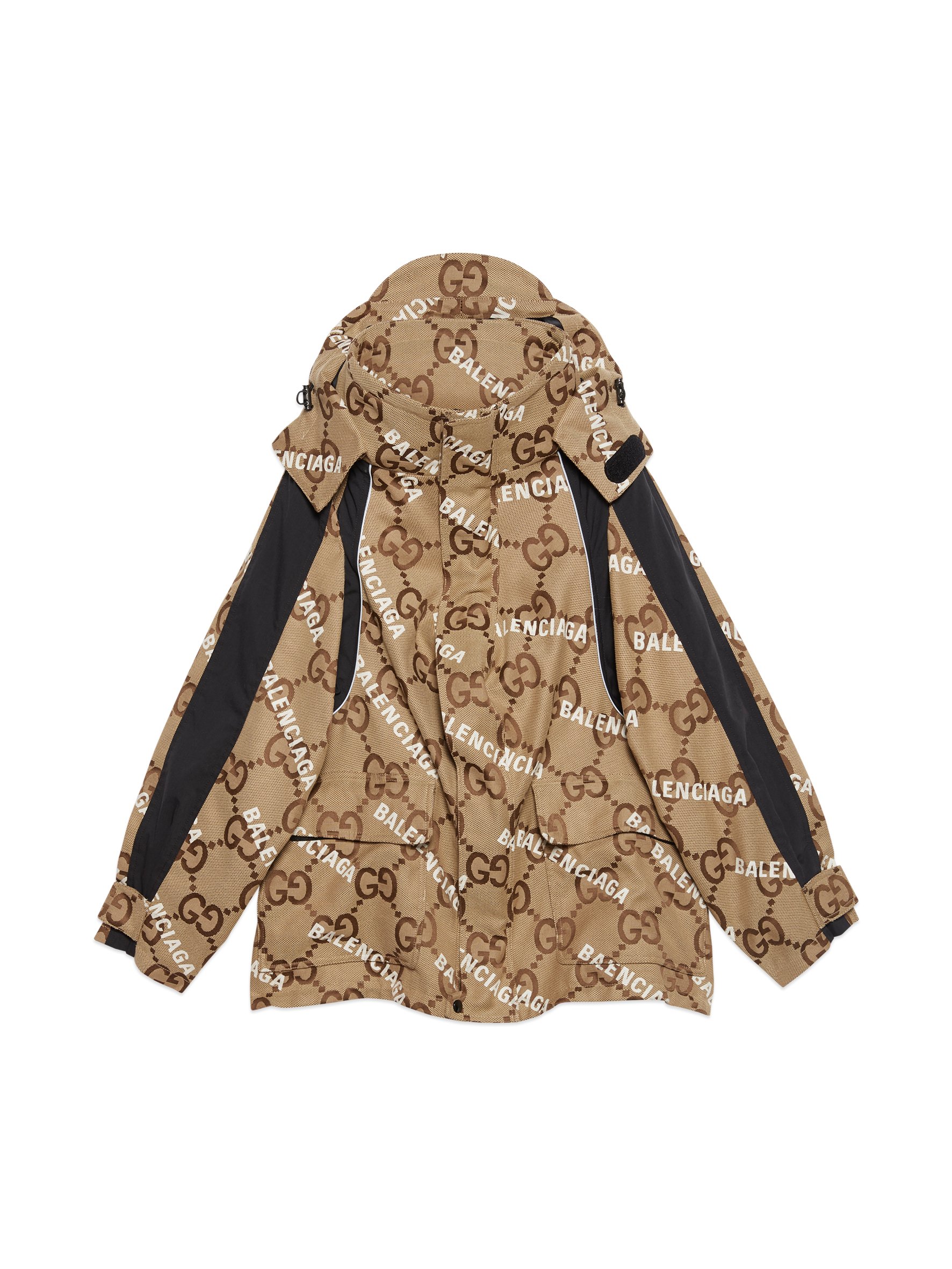
Crossovers seem increasingly ubiquitous in the worlds of art, fashion, and design, but rarely do two behemoth houses get together for a collaboration such as Gucci’s latest with Balenciaga.
The “Hacker Project,” which debuted in November at 74 Gucci pop-up shops worldwide, includes a trippy stable of pieces that merge the two brands’ respective iconographies, colors, and feels in a collection of bags, bucket hats, peacoats, scarves, shoes (including riffs on Balenciaga’s Triple S), tops, and other accessories that celebrate the two houses’ silhouettes and sensibilities.
At a first glance, many of the pieces appear to feature Gucci’s signature tone-on-tone “G- link” pattern—but, upon closer inspection, shoppers will notice that many of the G’s are, in fact, Balenciaga B’s.
The project was conceived jointly by Balenciaga’s creative director, Demna Gvasalia, and Gucci’s Alessandro Michele to explore “ideas of appropriation within the fashion industry,” according to the brands—and it will be undoubtedly popular amongst fashion lovers this holiday season.
At the Madison Avenue Balenciaga shop during the launch of the project (with the shop’s windows graffitied with ‘GUCCI’ in navy blue paint) crowds filled the space, some of them excited and aware of the collaboration, while others were confused about whether the store had truly been vandalized.
The graffiti artist Jack Greer additionally set up shop at the store to customize bags with a Magritte-inspired “THIS IS NOT A GUCCI BAG” message.
Photo courtesy Gucci.
Of the collection, the British Vogue fashion critic Anders Christian Madsen said it may well be “the most bullet-proof merchandise of the social media-driven fashion era,” prodding at astute questions about how social media has allowed copycatting to become so pervasive. Indeed, what feels most original now—what retains shock value—is to break the rules so pointedly by invoking a cardinal fashion no-no: to allow heritage brand identities, histories, and symbols to mix. To look at this collection is to feel it is in some ways not real, or even, as Tora Northman put it in her piece for High Snobiety, “almost wrong.”
Photo courtesy Gucci.
That was exactly why Michele and Gvasalia brought the collection to life—to push our ideas of fashion past surface-level codes.
“I love logos because they often make my job so much easier,” Gvasalia said in an interview with British Vogue about the Hacker Project.
“I like to have fun turning them upside-down and in every direction, but one really needs to put in a bit more intellectual effort than considering a logo to be a fashion tool—especially in the context of my work. It is about building a silhouette, engineering an attitude and posture into a garment, and creating a signature style. Real fashion is way deeper than a logo on its surface.”